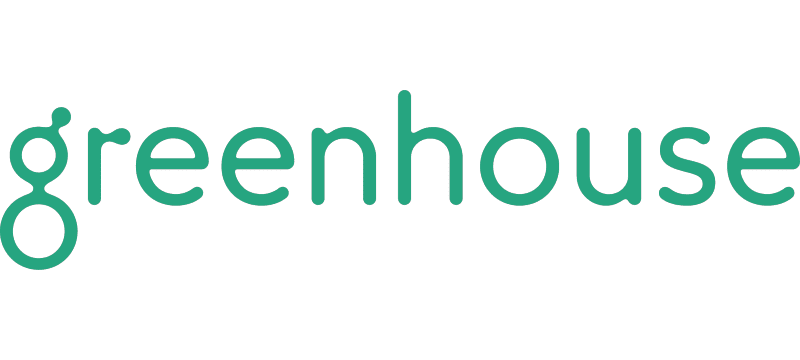Mastering Enterprise Recruitment: Unleash AI for Hiring Efficiency
Deloitte's Private Company Outlook shows nearly two out of three surveyed business leaders envision difficulty attracting talent that aligns with their organizational needs in 2024.
In this webinar learn about how AI can transform enterprise recruitment: from streamlining processes to enhancing candidate sourcing.
Discover how to navigate competitive markets and attract top-tier talent with innovative hiring strategies.

![1635811635473[49]](https://www.unleash.ai/wp-content/uploads/2024/02/163581163547349.jpeg)


UNLEASH is recognized by SHRM to offer Professional Development Credits (PDC) for SHRM-CP or SHRM-SCP recertification.
In this UNLEASH webinar watch Allie Nawrat, Chief Reporter at UNLEASH speak with Chet Ritchie, Global Head of Talent Acquisition at Manulife, Rachel Gulley, Talent Acquisition Operations at FanDuel, and Mona Khali, Senior Manager of Data Science – Engineering at Greenhouse as they discuss the revolutionary role of AI in enterprise hiring, where it can be used to automate or aid strategizing, and how it can deliver for high-volume recruitment needs.
Where can we use AI?
With benefits from improved scalability and efficiency to making all HR operations more sustainable, it can be difficult to know where to exactly implement AI. Here, Chet Ritchie, Global Head of Talent Acquisition at Manulife had advice: look at places where it can reduce the administration burden, where it can be replicated across the business, and where it might supplement time-intensive tasks, such as writing job descriptions.
For recruiters, he advised they use AI as prompts, such as when writing job descriptions, and interview guides, but not for critical decision-making moments. AI can be tricked with certain words added into resumes to bypass software filters, so recruiters have to be hot on where it works and where it doesn’t. “Any decisions made with AI need to be evaluated with scrutiny,” added Mona Khali, Senior Manager of Data Science at Engineering at Greenhouse
But it can have a positive impact, especially around freeing up recruitment time. Rachel Gulley, Talent Acquisition Operations at FanDuel added that recruitment teams need to be thinking ahead of time: what are the use cases of AI? Where can we test? Can we roadmap implementation? Could it help us free up time to improve other aspects of HR, such as doing administrative recruitment tasks with AI and better delivering internal career prospects? “How nice would it be to free up TA and HR time to focus on internal employees,” she said.
Implementing AI
Gulley recommended taking a step back, engaging all the right stakeholders, and figuring out how AI will evolve, too. Indeed, Ritchie adds it can be easy to be overwhelmed by marketplace options but ensure you know what you want.
Webinar panelists agreed that AI is about supplementing teams and individuals to be of even more strategic use than they were previously — rather than the technology replacing recruiters.
“The dream scenario [for AI] is like when Excel came out…saving time to enable expertise and it becomes a tool to assist you, to give you time to focus on what you’re best at.” Mona Khali, Senior Manager of Data Science at Engineering at Greenhouse
Doing more with less
With almost half of the attendees noting that they think future budgets will remain flat, and many experiencing the need to hire at even greater volume, the conversation turned to where AI can help here. There was lots of practical advice. Ritchie explained how AI can schedule interviews, making the process less complex, and freeing the team to do more human elements, such as speaking to candidates.
Khali added that AI can even be used to reshape HR. Rather than simply replacing a human task with technology, teams can think about how it might supplement HR’s and TA’s strategic aims.
Of course, any implementation would have come with an eye on ethical use and bias mitigation. Even on simple tasks, added Khali, teams have to ensure that there is no bias, such as in language on email send-outs. This is especially critical as the AI landscape is moving fast and it can feel like there is pressure to implement without considering the knock-on effect on areas of recruitment practice like DE&I. Here, she added, have a biased audit, look for industry best practices, and ensure (if an enterprise working in multiple geographical locations) you understand regulations across different countries.
The future is bright
That said, if recruitment teams can start getting to grips with AI then the future is bright. As Ritchie said: “AI is like a giant calculator and we are just learning the basic functions at the moment and we have no idea what it can do…in five years who knows what conversation we’ll be having in talent acquisition around AI.”
Of course, getting there will require being careful. As Gulley advised: don’t get distracted by hype, be measured, and ensure all implementation is to enhance the candidate and recruiter experience. “Be smart, be deliberate, and take time,” she said.
In this way, she added, AI won’t replace recruiters, coordinators or sources— it will only evolve recruitment further. And by being able to quantify and show clearly where it will help, will ensure the business, from C-suite to employee, is bought in. Critical for success.
Don’t forget you can hear from the Greenhouse team at UNLEASH America to get the lowdown on hiring efficiently and effectively, at scale.
